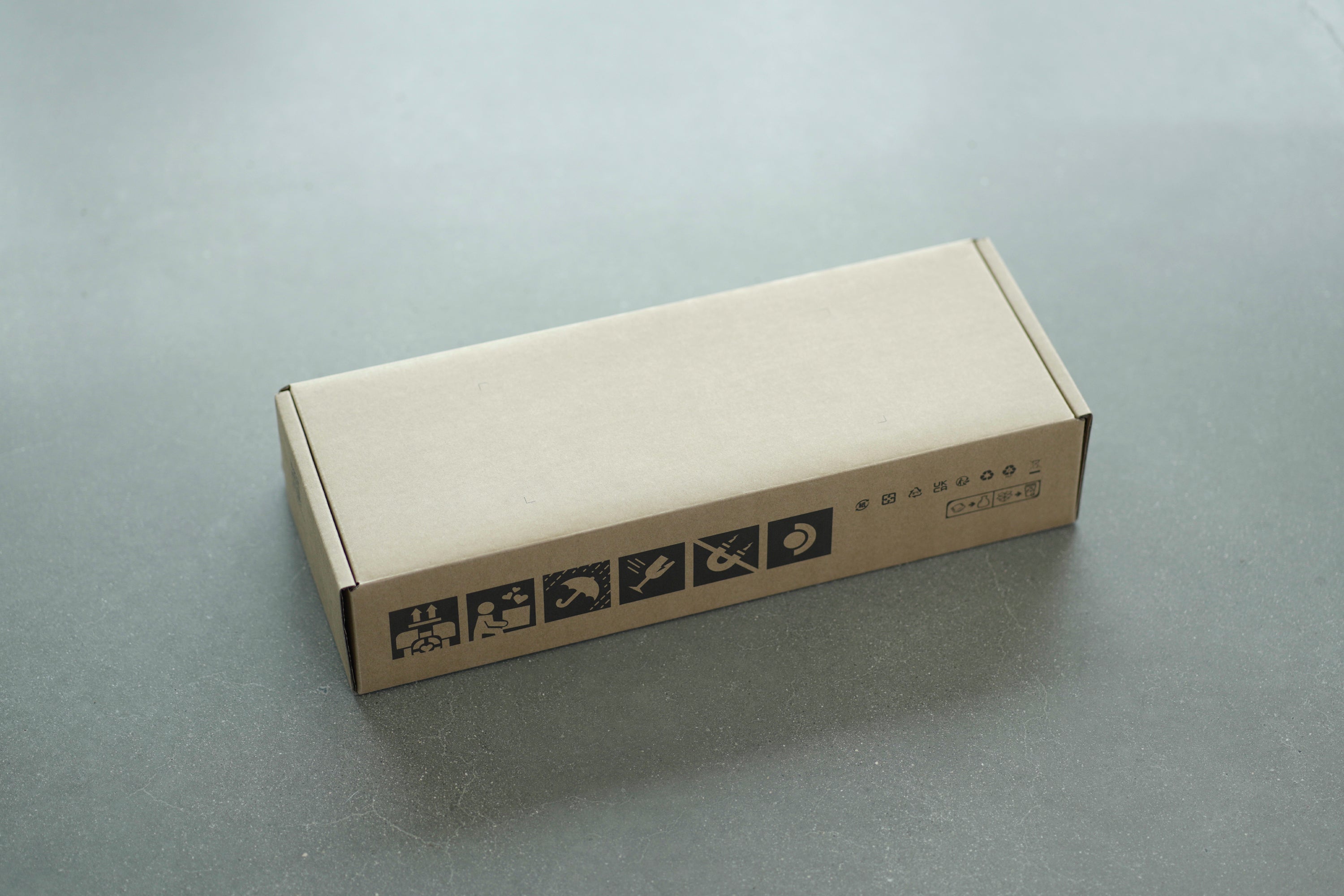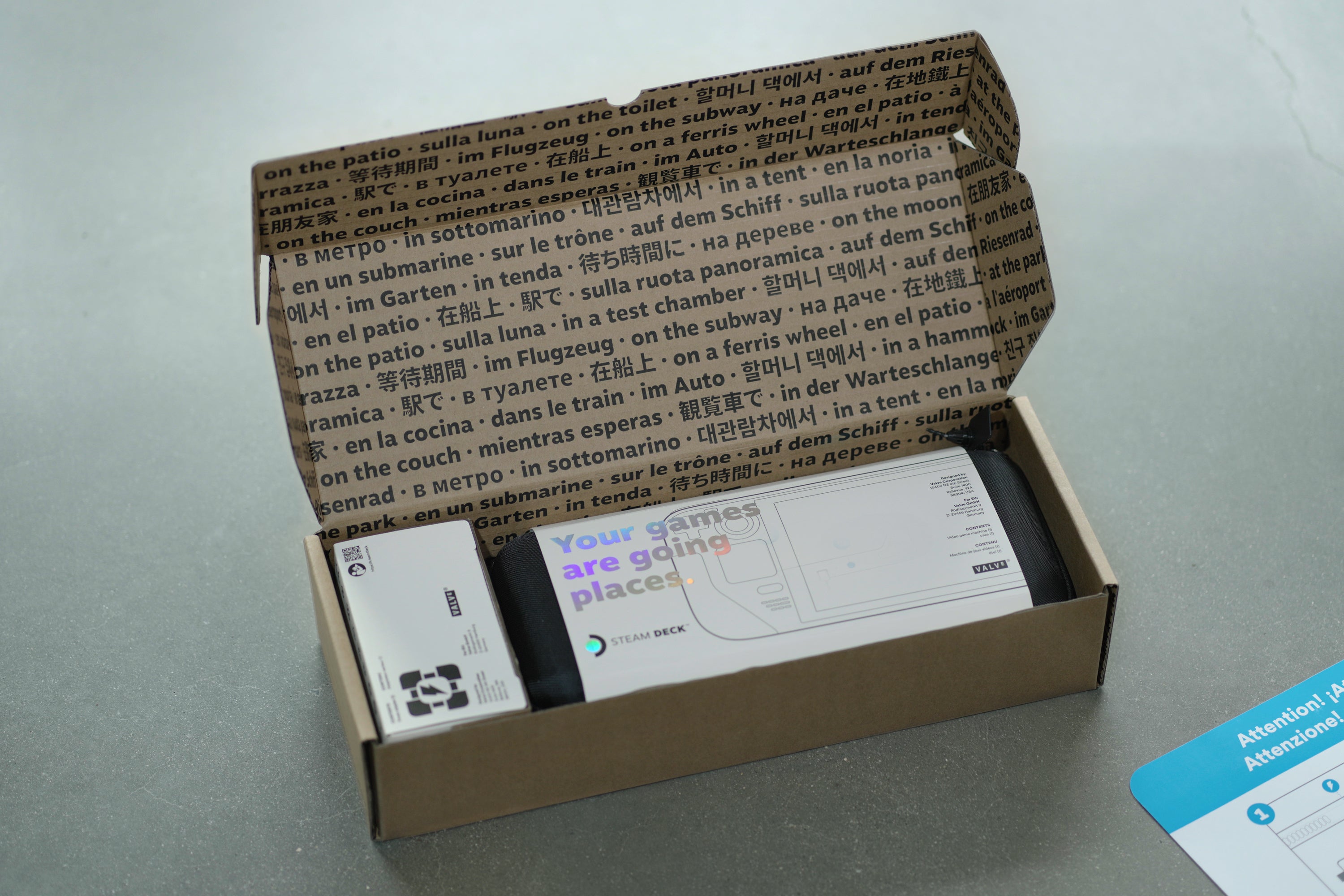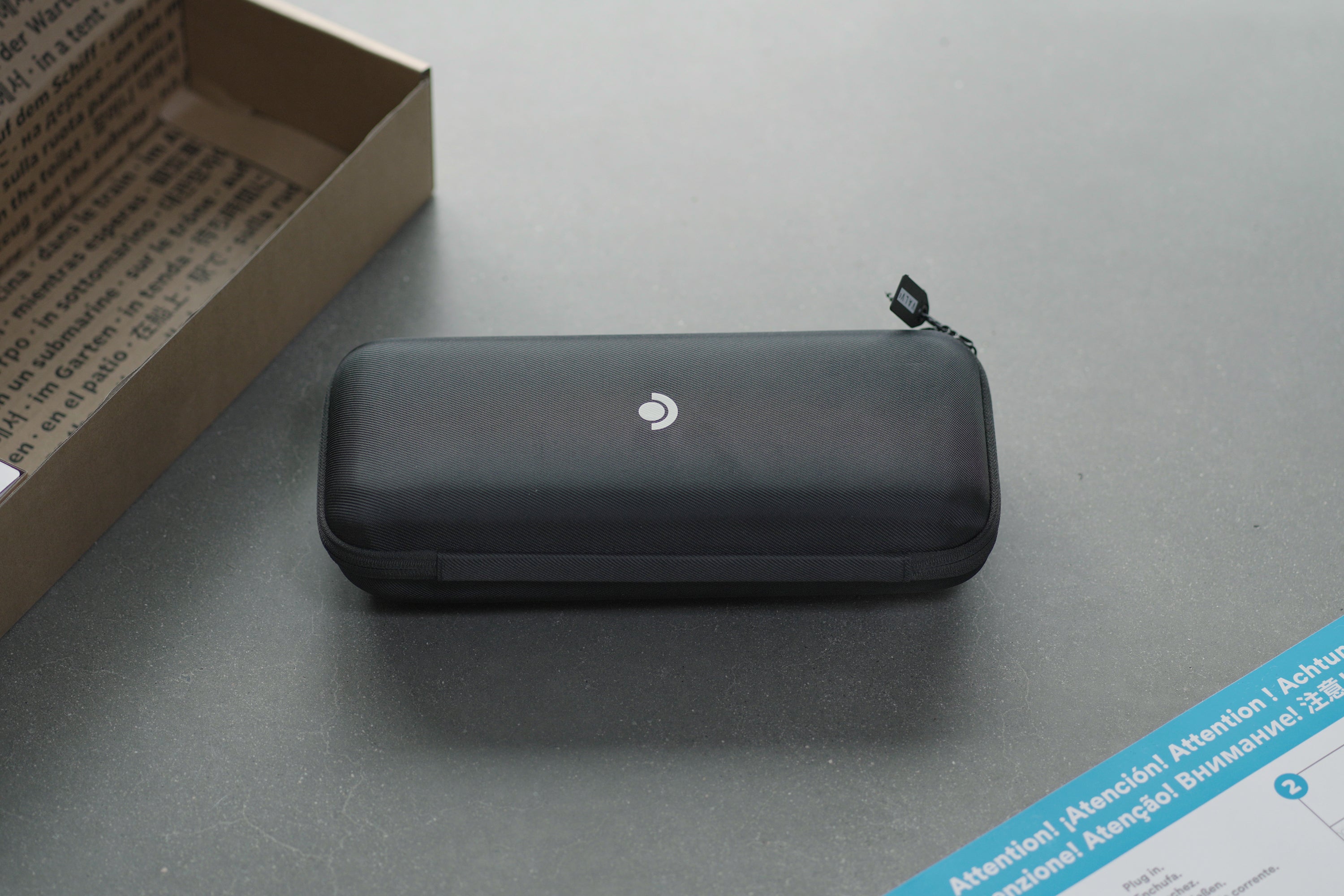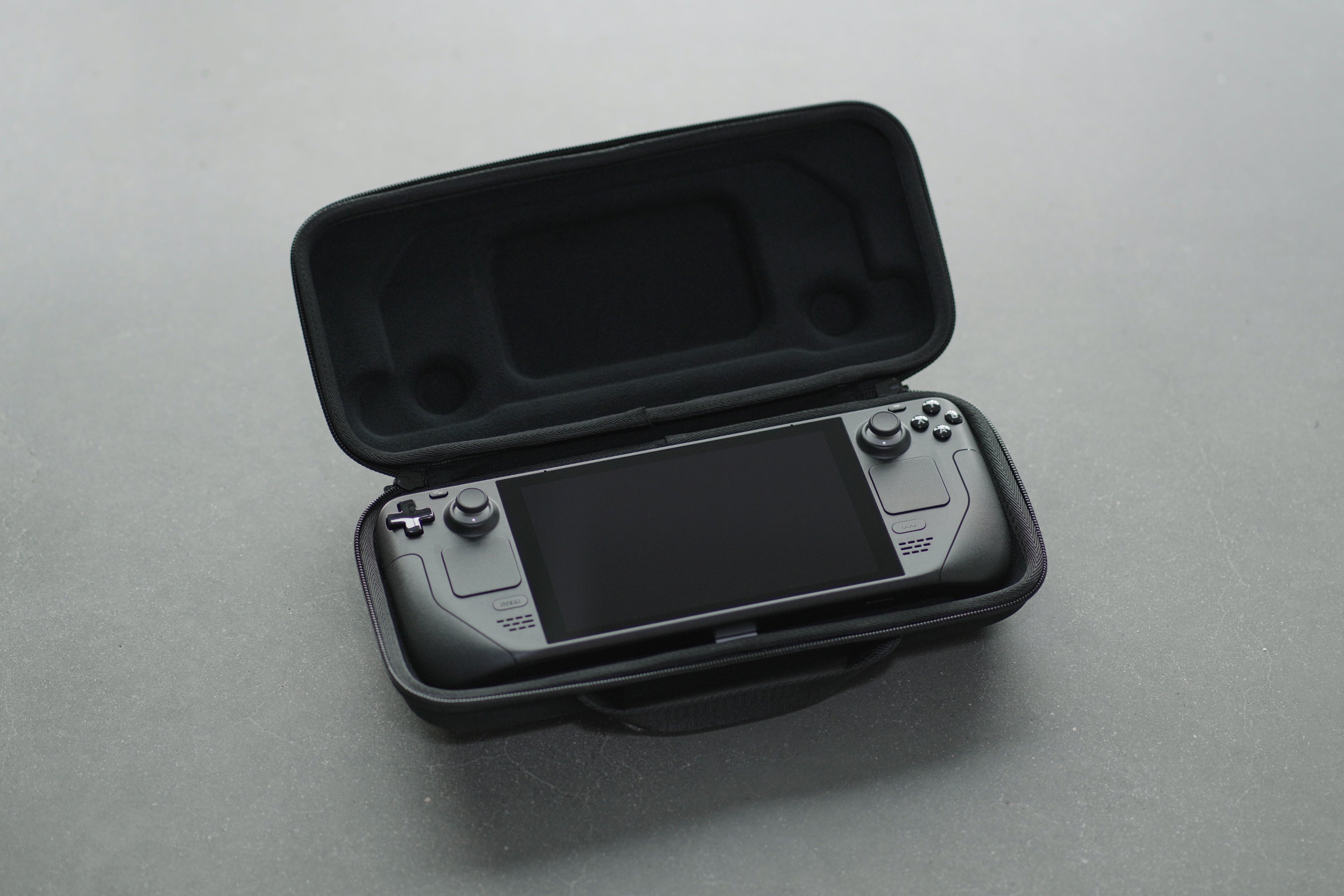We’ve already seen a fair amount of Steam Deck in the run up to its release - including a peek at its innards and the categorisation system Valve is employing so purchasers know exactly what is and isn’t compatible with their new device on Steam - but the company’s latest update is all about what’s on the outside. Specifically, the various bits of packaging Steam Deck will come in. First, there’s the cardboard box itself, a snug bit of packaging that keeps unused space to a minimum. Open it up and you’ll find a (probably not exhaustive) list - written in a multitude of languages - of suggested places you might wish to use your new device, including garden, ferris wheel, patio, train, couch, tent, test chamber, submarine, and toilet. Then, once you’ve removed the bit of paper explaining how to plug your Steam Deck in and turn it on, you’ll spy the supplied power adapter - complete with companion cube cameo - and come eye-to-plastic-lump with the handheld itself. Or at least the sleeve it’s wrapped in. Hurl all that out the window (actually, probably don’t) and you’ll be greeted by Steam Deck’s curvaceous carry case, included with every purchase. It’s pretty stylish in its own understated way - certainly full marks for the tastefully minimalist branding - with innards carefully molded to Steam Deck’s form factor, snugly holding it all in place. According to Valve, the unit shown in its post is actually a design validation manufacturing build of Steam Deck, which will be used for additional testing and to send out as developer kits. “DV is the final prototype build before production,” Valve explains, “and it includes improvements from the EV2 build. After this build, there will be additional minor changes in the final product.” The packaging, however, should be more or less as it will appear when customers start to receive their units in February next year. That release date is a little later than originally planned of course, with Valve ultimately opting to delay Steam Deck’s 2021 launch into next year as a result of “material shortages”. “While we did our best to account for the global supply chain issues (by which we mean we factored in extra time to account for these risks and worked with multiple component vendors),” Valve explained at the time, “our manufacturing plans were still impacted.” It’s now aiming to send order invitations out by February 2022, and will “make every effort to convert all reservations to orders but [is] not able to guarantee availability.”



